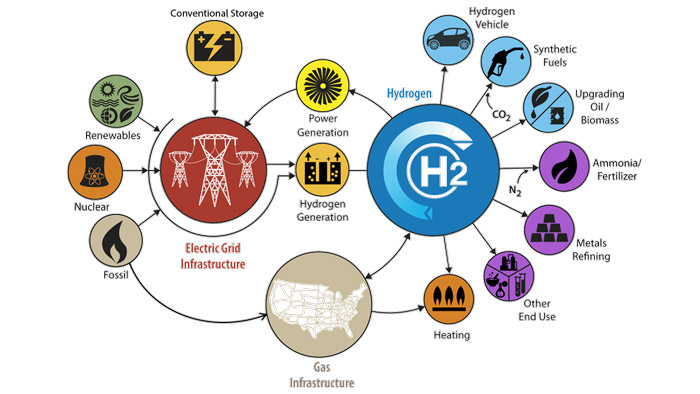
U.S. pursues hydrogen and fuel cell R&D with new lab consortia
The U.S. Department of Energy (DOE) announced the intention to invest up to USD100 million over five years in two new DOE National Laboratory-led consortia to advance hydrogen and fuel cell technologies research and development (R&D). This funding is subject to appropriations.
One consortium will conduct R&D to achieve large-scale, affordable electrolyzers, which use electricity to split water into hydrogen and oxygen, and can be powered by various energy sources, including natural gas, nuclear, and renewables. This R&D will complement and help support large industry deployment by enabling more durable, efficient, and low-cost electrolyzers.
The other consortium will conduct R&D to accelerate development of fuel cells for heavy-duty vehicle applications, including long-haul trucks. This initiative will set a five-year goal to prove the ability to have a fully competitive heavy-duty fuel cell truck that can meet all of the durability, cost, and performance requirements of the trucking industry.
The two consortia will leverage world-class expertise and state-of-the-art equipment at DOE’s National Labs and support DOE’s H2@Scale vision for large-scale, affordable hydrogen production, storage, distribution, and utilization across multiple applications, energy storage, and metals manufacturing.
H2@Scale is led by the Office of Energy Efficiency and Renewable Energy (EERE’s) Hydrogen and Fuel Cell Technologies Office.
“We have made tremendous technological progress on fuel cells, electrolyzers, and fundamental materials, but hydrogen infrastructure remains a critical barrier we are committed to overcome,” said DOE Assistant Secretary for Energy Efficiency and Renewable Energy, Daniel R Simmons. Simmons gave a preview of this announcement during his remarks at the International Partnership for Hydrogen and Fuel Cells in the Economy’s virtual Global Hydrogen Forum held on June 18, where he represented the United States as the IPHE Chair.
“Through these new consortia, the national labs, industry, and academia will work together to improve the cost, durability, and distribution of these technologies in order to realize their full potential.”









